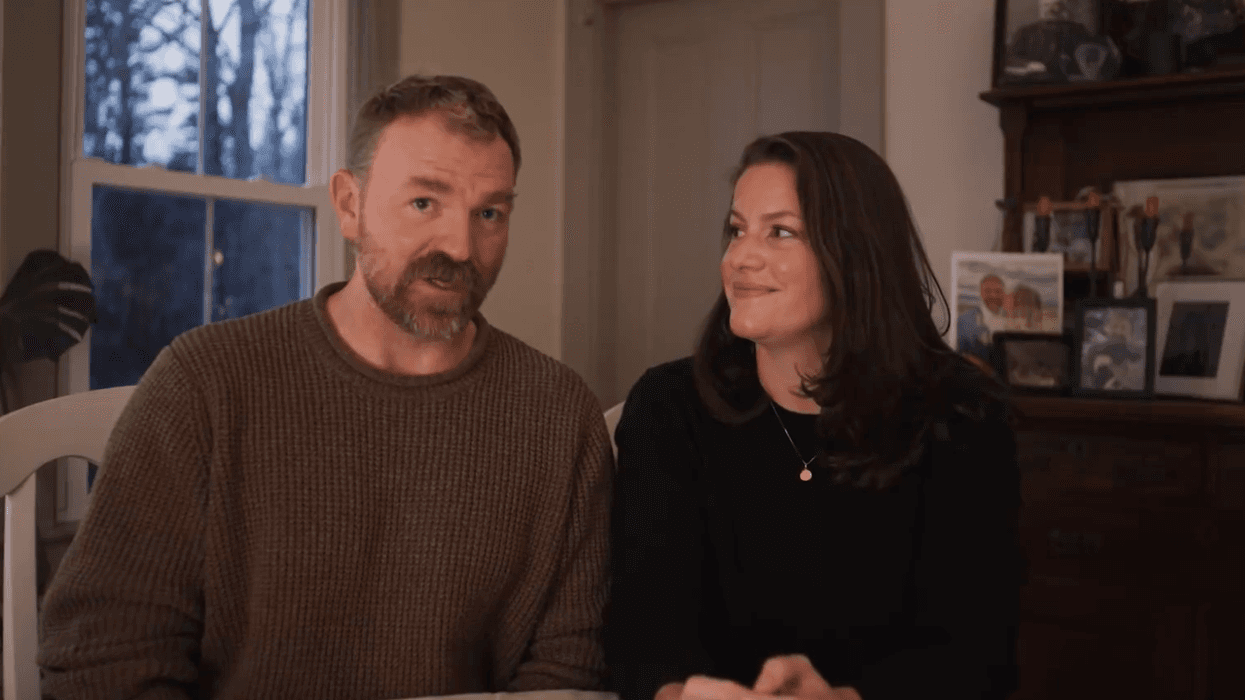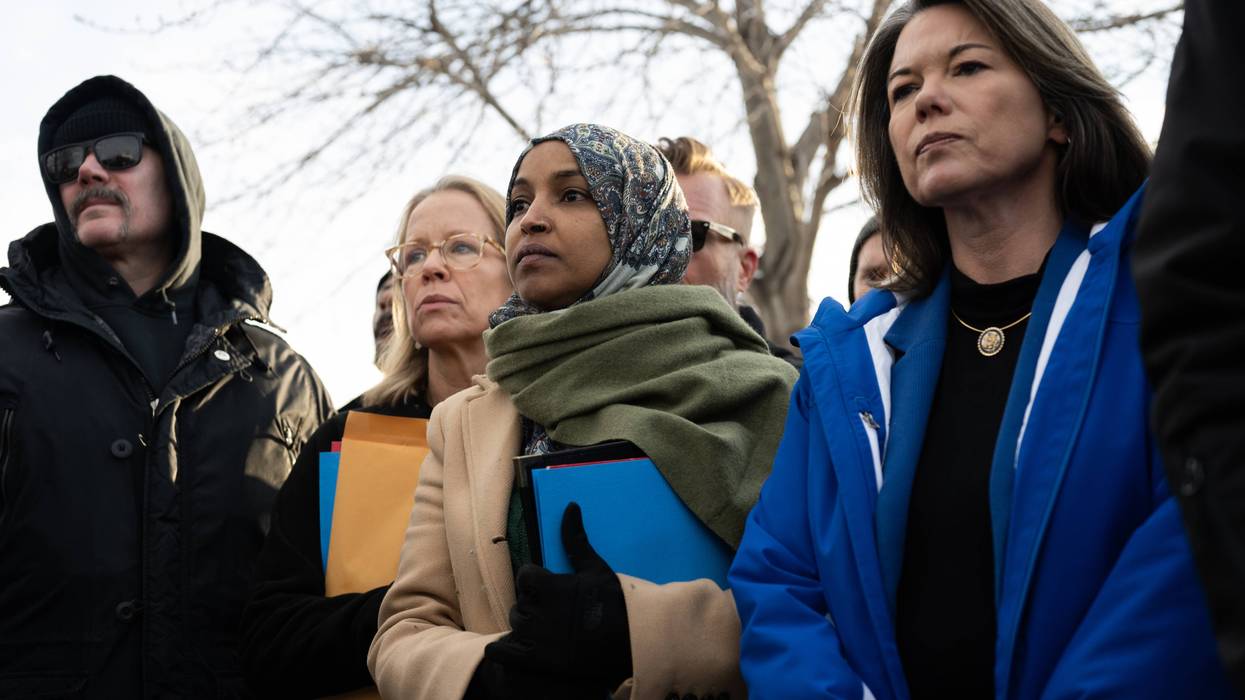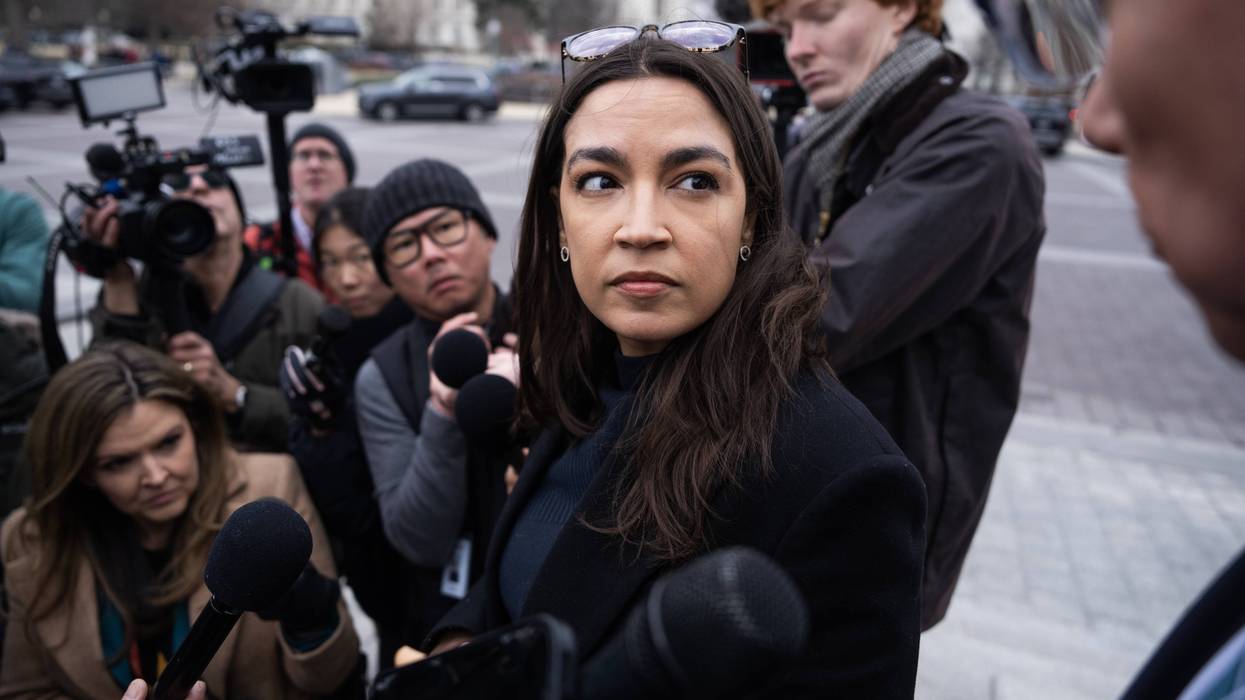"Amy and I's life has taken an incredible turn," says Platner, filmed sitting with his wife in their home in Maine, as the video begins.
"We have been all over the state of Maine, from Ogunquit to Madawasca, from Rumford to Callis, holding well over 30 town halls" over recent months, he explains. "But in the background, we've also been trying to do something else, something we've been trying to do for a couple of years, and that has been to start a family."
"One round here in the States is $25,000. One round in Norway is $5,500 bucks. Even when you add on plane tickets, it's incomparable." —Graham Platner, candidate for US Senate
Watch:
Throughout his campaign for Senate, Platner, a military veteran who has benefited from the VA health system, has consistently called out the social injustice and economic backwardness of the nation's dominant for-profit healthcare system. Backing Medicare for All, Platner has said a single-payer system—with no co-pays, profit motives from giant insurers, and free medical care at point of service—is "the answer," a profoundly better way to manage the health needs of Americans, especially working people.
"I don't think we should live in a system where only the wealthy can afford healthcare," Platner said at a campaign event last year.
In December, just before the New Year, he said, "I will fight for Medicare for All in the Senate. Until we win it, I’ll back every bill that expands Medicare and Medicaid, cuts prescription drug costs, and puts the healthcare needs of the working class first."
In Saturday's announcement about their infertility journey and where it's headed next, the couple explain that they first looked at the VA to see if that would be a viable pathway to make the IVF process—which can cost $25,000 per round of treatment—more affordable.
Unfortunately, they found out, as Amy explains, that because "the infertility was something that was part of my body" and less so of Graham's, the VA system would not cover the treatments.
"We're going to have to have a conversation in the Senate, by the way," Graham said of that dynamic. "It takes two people. If you wanna have a kid, it's not a one-person job."

But while the VA's denial may have been the "end of the road," feared Amy, her doctor told her about other patients who have sought treatment abroad, where IVF treatments can be a fraction of the cost—a familiar pattern when it comes to what people in other countries pay for care, treatments, and prescription drugs compared to the United States.
Given Amy's assertion that she wanted to have a baby of her own "ever since I knew that it was something the female body was capable of doing," the idea of going to Norway arrived as a lifeline.
"To watch the woman that I love, who I want to start a family with, go through this experience of infertility," says Graham in the video. "I can see how it impacts her. I have so much respect and so much ... I'm so impressed at how you've been able to handle it."
Ultimately, it was the affordability dynamic, they explain, that led them to take the idea of going abroad seriously.
"One round here in the States is $25,000. One round in Norway is 5,500 bucks," Graham explains. "Even when you add on plane tickets, it's incomparable."
"Not to get political," he continues, "but it's a real indication of how flawed our healthcare system is. For us, the Senate campaign is a way of making sure that other people do not have to go through the exact same things that we've been through, where we can help build power in order to go get things that working people in this country need, like a universal healthcare system that provides fertility support."
Graham and Amy first spoke about their trip with local journalist Jesse Ellison with the Midcoast Villager for a story published on Thursday. In their conversation with the local paper, they both spoke of how the deeply personal struggle of trying to get pregnant is not at all divorced from the very real reasons that they both decided to back Graham's run for Senate.
From Ellison's reporting:
“It’s less about the VA and more about the fact that IVF is unaffordable for regular working-class people in this country,” Platner told me. “The concept of insurance companies not covering infertility treatment is why we need universal health care. Our story of infertility is just another example among many stories, we know we aren’t the only people struggling with this.” And so the two of them decided to talk about this choice publicly, too. Because if flying to Norway, spending two weeks in an Airbnb, and paying out-of-pocket for health care makes more financial sense than getting care here in America, well, that says something in and of itself.
For her part, Amys says, "I really wanted to share the story with any of you who have experienced infertility. I don't know if I have all of the answers or if sharing this story makes you feel like you're part of a community of infertility, but I hope that this can offer you some hope."





